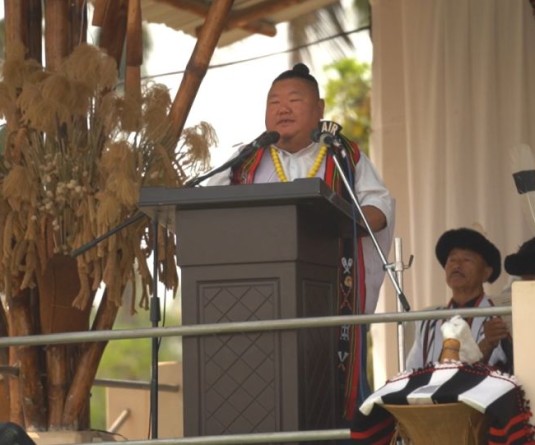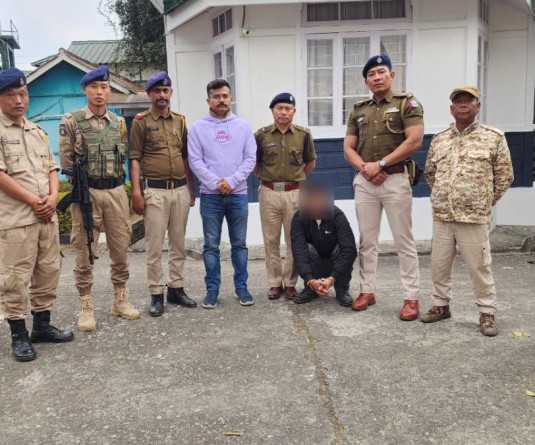Participants at the NCCAF Earth Day 2025 celebration at Naga United Council Hall, Chümoukedima on April 22. (Photo Courtesy: NCCAF)

Morung Express News
Chümoukedima | April 23
The Nagaland Community Conserved Areas Forum (NCCAF) celebrated Earth Day 2025 with the theme “Investing our Planet, Securing our future” at Naga United Village Council Hall, Chümoukedima on April 22.
The first session was chaired by Setsachem Sangtam, Treasurer, NCCAF. The event commenced with an invocation by Lisi Shupao, Children Pastor, Naga United Village Baptist Church, followed by a brief history of the NCCAF by Heirang Lungalang, Chairman, NCCAF. Established in November 2014, the Forum began with the protecting five designated zones. The significance of women’s involvement in conservation activities was also strongly emphasized.
The keynote address was given by Supongnukshi Ao, IFS, Chief Conservator of Forests and Project Director, Forest and Biodiversity Management in the Himalayas – Nagaland Project, who stressed the urgent need to conserve endangered species, adopt sustainable water management practices, and engage in environmentally responsible behaviors.
He emphasized the importance of community ownership in conservation efforts and acknowledged the ongoing support from the German development agency KFW, particularly in advancing Earth Day initiatives across the region.
He also addressed the challenges posed by Nagaland’s diverse geography and climate, identifying human activity and pollution as primary drivers of global warming. He urged communities to make informed and sustainable choices, particularly in conserving plant life and water resources.
Vivika A. Sema, Assistant Conservator of Forests, Dimapur Range also spoke in the second session, where he discussed the global significance of Earth Dayand elaborated on the critical role played by the Forest Department in mitigating climate change.He also cited Article 51A(g) of the Indian Constitution, which mandates every citizen to protect and enhance the natural environment.
During the group discussion segment, delegates engaged in meaningful exchanges, sharing local experiences and identifying key environmental concerns. Discussions highlighted the need for practical, community-driven solutions, including effective water recharge techniques to address groundwater depletion and ensure long-term water security, and plantation of plants on the roadside.
The programme concluded with a summary of key takeaways and a vote of thanks by Tokugha Sumi, Vice Chairman, NCCAF.






